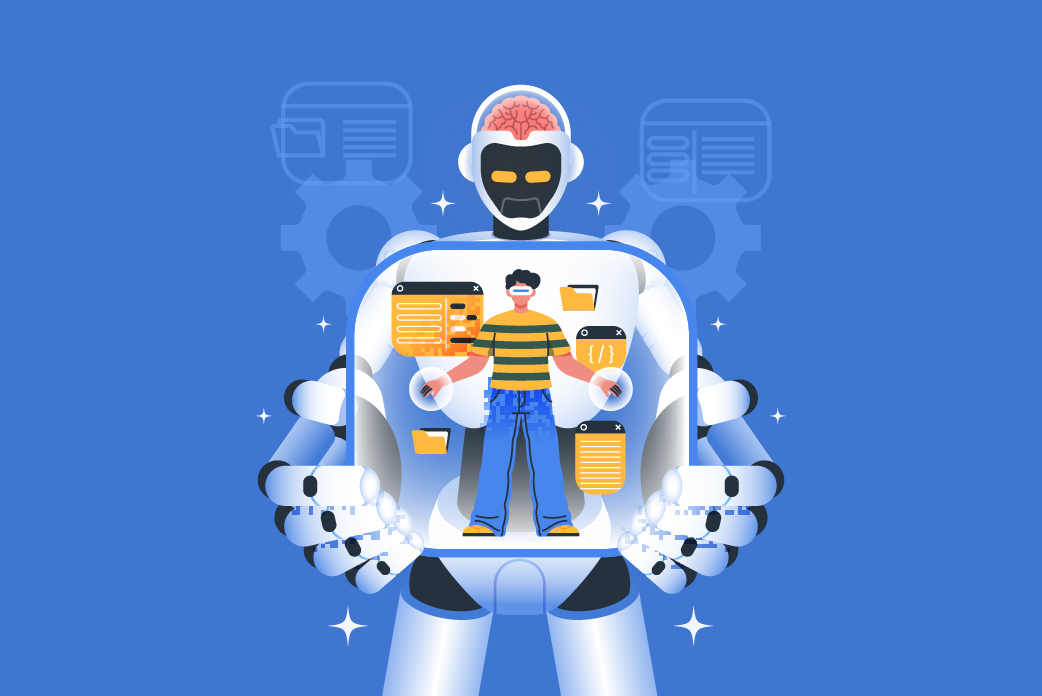In this digital ecosystem, a battle is unfolding between machine algorithms and clever actors. With thousands of articles and data points at their disposal, can artificial intelligence outsmart the cunning tactics of fraudsters and identity thieves?
Or will these malicious individuals find ways to collaborate with algorithms designed to thwart them, giving rise to a new era of sophisticated identity Verification manipulation?
The answer lies in the grey area, suspended between a definitive yes or no. On one hand, machine learning algorithms have made tremendous strides in detecting and preventing identity theft. That is by leveraging patterns and anomalies to stay one step ahead of would-be impostors. On the other hand, the dynamic nature of digital threats means that even the most advanced algorithms can be vulnerable to exploitation.
Now, as we travel this uncertain terrain, it's clear that the future of identity verification will rely on the ongoing interplay between human ingenuity and artificial intelligence. Will we find a way to harness the power of algorithms to create an airtight identity verification system or will the forces of deception and manipulation continue to find ways to evade detection?
The outcome remains to be seen, but one thing is certain: the stakes have never been higher, and the effects of technology have never been more severe. As Incwood Research reports- The India identity verification market growth is anticipated to progress at a CAGR of 16.42% during the forecast period, 2023-2030 and is expected to record a revenue of $1166.56 million by 2030.
Now, to weigh the AI’s intervention, the following is how it is weaving its intelligence in the matters of Identity Verification- The Power of AI-Driven Document Processing
In the era of instant gratification, real-time verification has stepped up the ladder and sculpted the foundation for identity verification. Here, Artificial Intelligence plays a critical role in the ability to process documents at a higher speed, while reducing verification times to mere seconds, leaving no gap for Human intervention.
With that being said, the art of automation has redefined the onboarding process, allowing businesses to verify customer identities promptly. Gone are the days, when routes for manual reviews, lengthy wait times and delays were a thing. It is the onset of AI-driven document processing, verification can now be conducted in a snap.
The benefits are twofold. On one hand, businesses get to onboard customers quickly, reducing friction and improving user experience. On the other hand, AI-powered verification systems cancel the hassle of human error, ensuring that identities are verified with non-negotiable security and accuracy.
With AI at the helm, businesses get to stay ahead of the curve, ensuring a secure onboarding experience, tailored to meet the needs of the digital economy. The Vanishing Identity Gap
Did you know that AI-powered identity verification can reduce the time it takes to verify identities by up to 90% But how? By leveraging machine learning algorithms that can analyse documents in real-time, as AI is bridging the gap between manual reviews and instant verification, with its robust technology in check. Predictive Fraud Prevention
Imagine an AI system that can detect even the slightest anomalies in identity documents with unparalleled accuracy. But what if this system could also predict the likelihood of fraud before it happens?
With AI-driven identity verification, the future of fraud prevention is being rewritten. This is no longer the realm of science fiction, as AI-driven identity verification systems are now capable of analysing vast amounts of data to be able to identify patterns and anomalies that indicate potential fraud. With the embedded machine learning algorithms, the technology puts forth the fraud risk score to individual identities, enabling businesses to take proactive steps to prevent fraud before it occurs. No wonder, this predictive capability improves the field of fraud prevention, allowing businesses to stay one step ahead of fraudsters and protect their customer’s identities with unparalleled accuracy.
Adaptive Fraud Security
As AI-powered identity verification systems become more prevalent, a new era of security is emerging. But what if these systems could not only detect fraud but also adapt to new threats in real time?
The implications are staggering. This is now a reality, as AI-driven systems may be able to learn from new data and patterns, enabling them to identify and respond to emerging threats before they can cause harm. This adaptive capability is critical in the fight against fraud, as fraudsters are constantly evolving their tactics to evade detection. While staying ahead of the fraud curve, AI-powered identity verification systems are redefining the future of security, allowing businesses to safeguard their customers’ identities with confidence & precision.
Now, as we find ourselves immersed in a world, where technology has become like a sacred thread and the very fabric of our existence. The air of artificial intelligence and its presence is spread like a digital contagion with AI redefining identity verification. Markets & Markets report that the global artificial intelligence market size is projected to grow from $150.2 billion in 2023 to $1345.2 billion in 2030, at a CAGR of 35.7% between 204 and 2030. Nevertheless, in this digital ecosystem, where the pace of innovation is relentless, the only constant is change.
Additionally, as technology advances, making sure people are who they are online is becoming more important than ever. Artificial intelligence (AI) is helping to make the process faster and more secure, allowing businesses to quickly verify customer identities. However, there is still a constant battle between AI and people trying to commit fraud. Regardless, AI is getting better at detecting and preventing fraud and is helping to create a safer online environment.
The future of online identity verification will depend on how well humans and AI work together.


